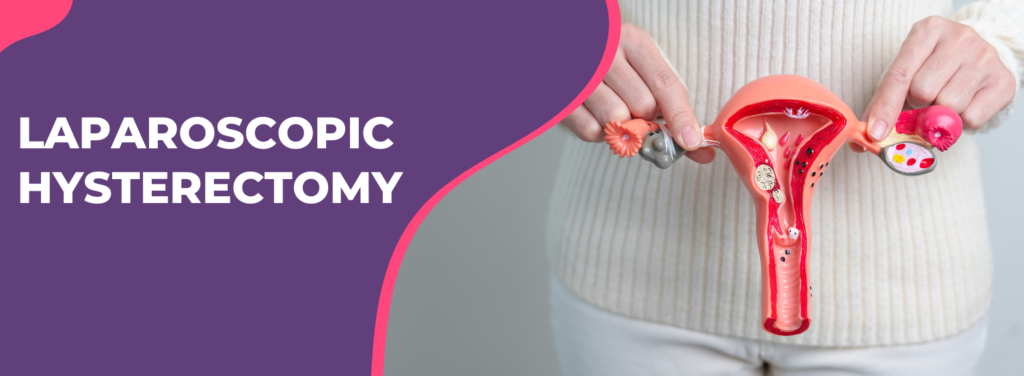- Home
- Laparoscopic Hysterectomy
Services


Laparoscopic Hysterectomy in Talwandi Sabo
Each year, around 500,000 hysterectomies are conducted in the United States. Most of these procedures address non-cancerous conditions like fibroids, abnormal uterine bleeding, and pelvic organ prolapse. For women in Talwandi Sabo seeking advanced treatment options, a Laparoscopic Hysterectomy can offer significant benefits, including faster recovery times and reduced post-operative discomfort. If you’re considering a Laparoscopic Hysterectomy in Talwandi Sabo, consult with Dr. Divya Gupta Jindal for expert guidance tailored to your specific health needs.
What is Laparoscopic Hysterectomy?
Laparoscopic hysterectomy is a minimally invasive procedure intended to replace abdominal hysterectomy. It is well-documented that patients undergoing laparoscopic hysterectomy experience less pain, reduced bleeding, lower infection risk, and faster recovery compared to those having abdominal hysterectomy.
In this procedure, a vaginal hysterectomy is performed with the assistance of a laparoscope—a thin, flexible tube with a video camera. Small tubes are inserted through tiny incisions in the abdomen near the navel. The uterus is then removed in sections through the laparoscope tube or via the vagina.
Based on the test results, the gynecologic oncologist devises and executes a tailored treatment plan. This approach is crucial for ensuring successful treatment outcomes under the care of the gynecologic oncologist specializing in Laparoscopic Hysterectomy in Talwandi Sabo.
What complications can happen?
- Nausea or vomiting
- Bleeding
- Infection at the surgical site
- Allergic reactions to equipment, materials, or medications
- Hernia formation at the incision site
- Blood clots in veins (venous thromboembolism)
- Respiratory infections
Advantages of a laparoscopic hysterectomy
- Faster Recovery: Since laparoscopic surgery involves smaller incisions, patients generally experience less pain, reduced bleeding, and a lower risk of infection. This allows for a quicker return to work or daily activities. Most women recover from a laparoscopic hysterectomy within 2-3 weeks, significantly shorter than the 6-8 weeks typically required for recovery from a traditional hysterectomy.
- Shorter Hospital Stay: Many patients can go home on the same day as the surgery, rather than needing an extended hospital stay.
- Better Visibility: This technique provides surgeons with a clearer view inside the pelvis compared to abdominal surgery. The enhanced visibility is due to the ability to magnify images on a screen and the improved lighting during laparoscopy.
For women considering options like laparoscopic hysterectomy, exploring Gynecologic Oncology offers expert guidance on managing gynecologic cancers.
